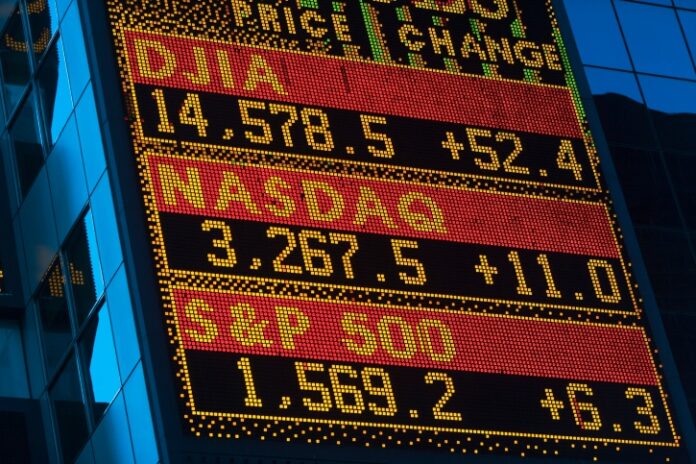Green energy stocks, once the darlings of Wall Street, have hit an unanticipated rough stretch, with fund managers rapidly withdrawing large amounts of money from the clean energy sector in recent months.
Strong evidence green energy companies are falling out of favor was provided by the significant declines in two indexes that track the green energy sector’s fortunes, WindsorHill Clean Energy and S&P Global Clean Energy. The Windsor Hill Clean Energy index fell by 13.9 percent in the first three weeks of 2022 and S&P Global Clean Energy declined by 8.2 percent during the same period.
From their market peaks in 2021, the WindsorHill index has fallen 54 percent and the S&P index has declined 39 percent.
Build Back Better
Evidence suggests one reason for the sharp decline in green energy stocks could be the failure of the Biden administration and Congressional Democrats Build Back Better (BBB) bill late last year.
The BBB bill contained $555 billion in spending on what was said to be climate-related provisions, representing the largest such expenditure on green energy Congress has ever considered.
Key components included 10-year tax credits to expand and accelerate investments in renewable power, including wind, solar, and nuclear. It also provided an electric vehicle tax credit of up to $12,500 for EVs manufactured at a U.S. factory with a unionized workforce.
The measure also would have boosted tax credits for Carbon Capture and Storage (CCS) technologies and projects, as well as established a Civilian Climate Corps, creating a nationwide pool of government-funded activists to spread the green message.
The sharp drop in green energy stocks’ fortunes dates from Democrats failure to overcome a filibuster preventing the BBB bill to be brought up for a vote the Senate.
Some green stocks did receive a modest boost late last year with the passage of the $1.75 trillion infrastructure bill, which, among other things, contained $7.5 billion to help finance a nationwide network of 500,000 EV charging stations.
The provision underscored the EV industry’s continued dependence on taxpayer funding if it is to become a viable competitor to gasoline- and diesel-powered vehicles.
Fiduciary Duties Being Ignored
Some prominent CEOs have adopted policies in line with the federal government’s current climate mania and green energy push, but this support may not be in the long-term interest of shareholders, says Scott Shepard, director of the National Center for Public Policy Research’s Free Enterprise Project.
“BlackRock CEO Larry Fink demands companies adopt zero-carbon schedules based on political predictions, such as that the United States will remain committed, in statute and regulation, to the IPCC’s climate-catastrophist vision,” Shepard told ECN. “Bank of America CEO Brian Moynihan has developed a set of ‘sustainability metrics’ he wishes to force on companies using similar assumptions that Fink and he share.
“But the personal policy preferences and climate fever dreams of these self-appointed masters of the universe do not impress investors, and do not substitute for public companies’ fiduciary duty to make their companies profitable in the real world,” said Shepard. “They must fully factor in all possibilities that cut against the left’s zero-carbon plans, including the virtual certainty the federal government’s regulatory and legislative posture will not remain constant for the next 25 years – and very possibly not for the next 25 months.”
Virtue Signaling Doesn’t Produce Energy
The recent decline in green energy stocks could be the start of something larger, a demand by shareholders that companies focus less on political posturing, and more on making a profit and returning it to shareholders, says Tom Randall, president of Winningreen, an energy and environmental consulting firm.
“Companies and investment houses that engage in crony capitalism while virtue signaling their concern for the climate are playing to an audience that is much narrower than many CEOs realize,” said Randall. “In the real world, whether in America, Europe or elsewhere, ordinary people notice skyrocketing energy prices that have resulted from the cozy relationship between government and green companies.
“Elites ignore the plight of ordinary people at their peril,” Randall said.
Bonner R. Cohen, Ph.D., (bcohen@nationalcenter.org) is a senior fellow at the National Center for Public Policy Research and a senior policy analyst with the Committee for a Constructive Tomorrow.



























[…] post Investors Are Increasingly Shunning Green Energy Stocks and Funds appeared first on Heartland Daily […]